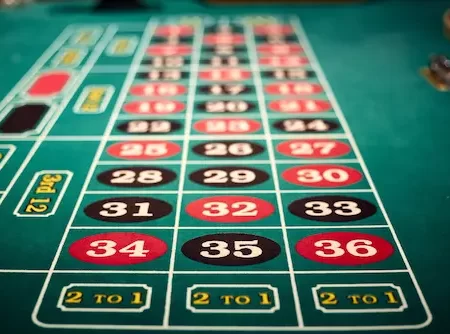Estimated reading time: 6 minutes
Introduction to the Game of Blackjack
Blackjack is a trendy casino game in the world. It is a card game played with one or more decks of cards, and the goal is to win the dealer by holding a hand worth more points than the dealer’s without going over 21 points. The game has a rich history that dates back to the 17th century and has evolved to become the game that we know and love today.
The blackjack game is popular among casino players for several reasons. For one, it is a game that requires skill and strategy, which makes it more engaging and exciting than other casino games that rely purely on luck. Additionally, blackjack has a relatively lower home advantage, pointing players have a better possibility of winning than in other games like roulette or slots.
Basic Rules and Gameplay of Blackjack
The blackjack game aims to beat the dealer by having a hand worth more points than the dealer’s without going over 21 points. Each card in the deck has a point value, with numbered cards worth their face value, face cards (kings, queens, and jacks) worth 10 points, and aces worth 1 or 11 points, depending on which value would be more beneficial to the player.
To play the game, each player is dealt two cards, and the casino dealer is dealt one card front up and face down. Players then have the opportunity to “hit” (take one more card) or “stand” (keep their current hand). The dealer must hit until their hand is worth at least 17 points, at which point they must stand.
Players can also choose to “double down” (double their bet and accept one more additional card) or “split” (separate their two cards into two separate hands and receive one more card for each hand). However, these options are only available under certain circumstances, and players should be familiar with the rules before using them.
Understanding the House Edge in Blackjack
The house advantage is the mathematical edge that the casino has over the player in a particular game. In blackjack, the house edge is relatively low, usually around 0.5% to 1%, depending on the game’s specific rules. For every $100 a player bets, they can expect to lose around $0.50 to $1.
The house edge in blackjack is affected by several factors, including the number of decks in play, the rules regarding when the dealer must hit or stand, and the payout for blackjack (usually 3:2). Different game variations have different house edges. Hence, players need to be familiar with the specific rules of their game.
Calculating Your Chances of Winning in Blackjack
Calculating your chances of winning in blackjack requires understanding probability and odds. Probability is the likelihood of a particular event occurring, while odds are the percentage of the possibility of an event happening to the chance of it not happening.
To estimate your odds of succeeding in blackjack, you need to know the number of decks in play, the specific rules of the game, and the cards that have already been dealt. There are a number of charts and tables available that can help players calculate their chances of winning in different scenarios.
Importance of Strategy and Skill in Blackjack
Strategy and skill are crucial components of successful blackjack gameplay. Basic strategy involves making the mathematically correct decision in every situation based on the player’s hand and the dealer’s up card. Advanced strategies, such as card counting, involve keeping track of the cards dealt to gain an advantage over the casino.
Players who use the basic strategy can reduce the house edge to around 0.5%, the lowest possible house edge in the game. However, advanced strategies require significant skill and practice, and they are not recommended for beginners.
Popular Betting Systems
Betting systems are strategies players use to manage their stakes to maximize their odds of succeeding. There are several popular betting systems in blackjack, including the Martingale system, the Paroli system, and the 1-3-2-6 system.
While betting systems can be effective in the short term, they do not change the game’s odds and can be risky if used improperly. Before attempting one, players should know the pros and cons of using a betting system.
How to Manage Your Bankroll
Bankroll management is an important aspect of successful blackjack gameplay. Players should set a budget for themselves before they start playing and stick to that budget no matter what. Additionally, players should know their risk tolerance and adjust their bets accordingly.
Players can use several bankroll management strategies, including the Kelly criterion and the 1% rule. These strategies can help players maximize their winnings while minimizing their losses.
Common Mistakes to Avoid When Playing
Some common mistakes beginners make when playing blackjack include:
- Not using basic strategy.
- Not managing their bankroll effectively.
- Not understanding the game’s rules.
These mistakes can be costly, and players should be aware of them to avoid making them.
To avoid making these mistakes, players should take the time to learn the game’s rules, practice basic strategies, and manage their bankroll effectively. Additionally, players should be aware of their emotions and avoid making impulsive decisions based on their feelings.
Suggestions for Boosting Your Odds of Winning
Players can use several tips and strategies to increase their chances of winning at blackjack. These include reading the dealer and other players, using basic strategy, and avoiding common mistakes.
Players should also be aware of the game’s specific rules, the number of decks in play, and the payout for blackjack. Players can boost their odds of succeeding at blackjack by understanding these factors and using effective strategies.
Conclusion: Mastering the Art of Blackjack Strategy and Probability
In conclusion, mastering the game of blackjack requires a combination of skill, strategy, and probability. Players should be familiar with the game’s rules, use basic strategy, and manage their bankroll effectively to maximize their chances of winning.
Additionally, players should be aware of the game’s specific rules, the number of decks in play, and the payout for blackjack. By using effective strategies and avoiding common mistakes, players can raise their probability of winning at blackjack and enjoy the game to its fullest.
The house edge in blackjack is the mathematical advantage that the casino has over the player. It is typically around 0.5% to 1%, depending on the specific rules of the game. This means that for every $100 a player bets, they can expect to lose around $0.50 to $1. The lower the house edge, the better the player’s chances of winning.
Calculating the chances of winning in blackjack involves understanding probability and odds. Factors such as the number of decks in play, the specific rules of the game, and the cards that have already been dealt can affect the odds. Players can utilize charts and tables to calculate their chances of winning in different scenarios.
Strategy and skill are essential in blackjack. Basic strategy involves making mathematically correct decisions based on the player’s hand and the dealer’s up card. By following basic strategy, players can reduce the house edge to around 0.5%, giving them the best possible chance of winning. Advanced strategies, such as card counting, require more skill and practice but can provide an advantage over the casino.
Popular betting systems in blackjack include the Martingale system, the Paroli system, and the 1-3-2-6 system. While these systems can be effective in the short term, they do not change the game’s odds. They are primarily used to manage betting stakes. It’s important to understand the pros and cons of each system before using them and to remember that no betting system can guarantee consistent winnings.















